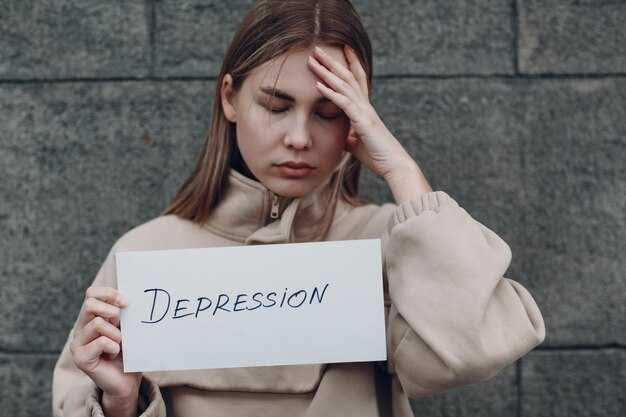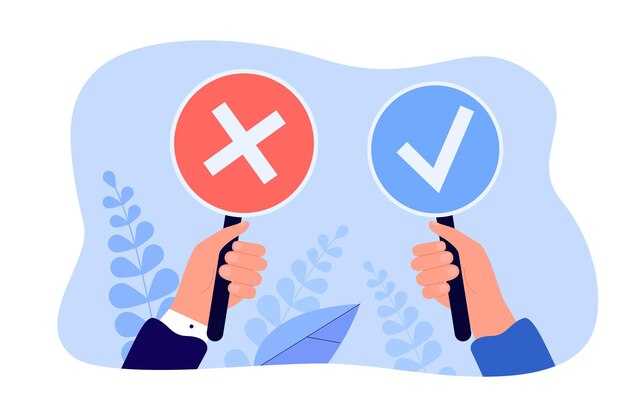there’s always a risk when you take part in 12-step groups or join online meetings made up of people who are there because they have a problem. It’s common for attendees to feel attracted to one another, and occasionally relationships develop. Remember, people are in these groups because they have struggles — with substances, with relationships, with honesty, or some combination of those things. So what should you do when someone starts fixating on you, behaving furtively or oddly, and seems unwilling to accept a clear “no, thank you” to dating? Today’s letter comes from someone I’ll call Liz. She writes: dear Anna, I’m trying to figure out how to extricate myself from someone who seems deceitful and is playing psychological games. Alright, I’ve got my imaginary highlighter ready to mark items I want to revisit on a second read, but let’s unpack Liz’s situation. Years ago she says she became “relationship anorexic” as a deliberate strategy to stop sabotaging her life. That term — relationship anorexic or anorectic — is used in some 12-step circles to describe people who avoid relationships as thoroughly as an anorectic avoids food. She was never happy being relationship-anorexic, but in hindsight she recognizes she probably sent mixed messages. Still, she stood by that stance because it made her life more manageable. Now she’s in a 12-step recovery program for adults from dysfunctional families, and she thinks she’s ready to date again — but she’s unsure how to handle her current predicament. There’s a man she knows from in-person meetings and from a Zoom meeting; she’ll call him Bill. He’s been flirting with her for a couple of years. She told him plainly that she was relationship-anorexic. For a long time he kept pursuing her: asking her out, inviting her to events, giving small gifts, and insisting there were “no strings attached.” As far as she could tell, he seemed sincere about that no-strings claim, yet it felt like he was trying to outwait her relationship anorexia. Later she discovered he’s actually still married, and she was grateful her instincts had warned her away. She has also witnessed him erupt into anger a few times in group settings, and he never made amends. Now that she’s healing and thinking about dating, she knows she doesn’t want anyone who is sneaky, quick to rage, or unwilling to acknowledge wrongdoing. So the next time he invited her out, she used a firmer tone and clearer words to stop the invitations, and that seemed to work — for a while. Here’s the complication: at first he stopped attending a weekly recovery Zoom meeting they both attended, but recently he seems to be logging in under a false name. The first time the new user appeared, the background image was a distinctive photo that Bill has used before. He left the meeting and quickly rejoined with a different background, and now he shows up each week with another background image. Coupled with a personal tagline I’ve never seen anyone else use, it’s pretty obvious the new anonymous account is Bill. It’s so apparent that it even makes me wonder if he wants to be discovered. I’ve chosen not to engage with the ruse — for example, when the new account asks in chat about the meeting format I let someone else respond even though I’m the host. The person never turns on their camera or shares, but the secrecy makes me uneasy and could harm the meeting atmosphere. I’m angry about the games and frustrated because I’m not sure what good options I have. Can you help me think this through? Yes I can, Liz. Twelve-step meeting dynamics are endlessly fascinating; after nearly a century, these fellowships still maintain similar traditions, culture and rules, with some local variation that allows each group to be itself. I spent many years attending a variety of meetings and found them extremely helpful, and over decades of involvement I became something of an old-timer who sponsored many people, so I’m used to being asked for opinions. I would be upset and creeped out by your situation — I might even consider leaving and finding a different meeting, though I’m not advising you to do that — I simply know I wouldn’t like being put in that position. Here are a few observations from what you’ve shared. First, about calling yourself relationship-anorexic: if that label resonates and you’re involved in a program that addresses it, that’s a healthy place to be. You’ll hear a lot of folks say, “don’t date anyone in your first year of recovery,” or warn against “13th-stepping”; it’s often offered as practical advice rather than an absolute rule. Good relationships can certainly arise out of 12-step connections, but one thing it took me time to accept is that everyone in those rooms is there because they have a serious issue — and when you first come in, you may put people on a pedestal because their recovery feels so inspiring. Eventually you realize they have the same kinds of flaws you do; they are not perfect. We’re human and attraction happens — inevitably. There’s a truism that you shouldn’t date in your first year of recovery, and sometimes people use that as a gentle excuse when they need to let someone down. When you said you were relationship-anorexic, that wasn’t necessarily an unambiguous “no” — he might have interpreted it as a temporary state to wait out. If someone thinks there’s still a chance, they may keep pursuing. Because many attendees have wounds around connection, it’s especially important to be direct: gentle but unmistakable. Think back to that initial moment when you told him you were relationship-anorexic — a firmer, kinder refusal might have dissolved the hope he was clinging to. Saying something like, “I’m sorry, I don’t feel that way about you,” while painful, is honest and prevents false expectations. People will be hurt, but with a clear, compassionate message they can grieve and then be available to meet someone who reciprocates. There’s a difference between not being interested and being relationship-anorexic as a cover story; sometimes people phrase things like “I’m not ready” when they really mean “I’m just not into this.” Since this man seems unable to accept refusal, clarity is vital — delivered as kindly as you can manage. It’s understandable to feel “icked out” and want distance, but kindness combined with firmness is ideal. Now about the anonymous Zoom account: what you describe is creepy. With so many meetings now online, different groups handle anonymity, cameras and name settings differently. Some meetings require cameras on, some don’t; many ask only for first names. On Zoom it’s easy to change your display name or swap backgrounds, which can enable impersonation. Given your experience leading large Zoom calls, you’re well aware people can change their names and backgrounds to preserve anonymity, but in this case the pattern of behavior — familiar backgrounds, a recurring tagline no one else uses, never turning on the camera — points to someone purposely hiding their identity. That pattern speaks to deeper instability, and while it’s understandable that someone with significant issues behaves oddly, you don’t have to tolerate it as the meeting secretary. Here are reasonable steps you could consider. First, reach out privately: if you have his contact information, send an email or text saying you believe that account is him, that his behavior makes you uncomfortable, and that pretending to be someone else is inappropriate for the meeting. Ask him to stop or to identify himself properly, or to stop attending. He isn’t necessarily required to leave unless he’s violating a clear meeting rule. Second, bring the matter up at your next business meeting and propose a rule change: require display names to be identifiable or ask members to have cameras on. Groups governed by the Traditions have the autonomy to set such guidelines, and a motion can be discussed and voted on. A more passive-aggressive option is publicly announcing in a meeting that you’ll raise the camera/display-name policy at the next business meeting — which might prompt responsible action. This scenario is a useful lesson in boundary-setting: a group’s norms are its boundary, and 12-step meetings operate under Traditions and local decisions. Anything from who may comment during shares to whether coffee is allowed can be decided by the group; cameras and naming conventions are likewise negotiable. Also consider online safety practices: be cautious about sharing personal information, and encourage meeting members to do the same. There’s always some risk when people meet in groups where emotional attraction can arise, especially when attendees are vulnerable around connection. The most important general principle is: when someone is attracted to you and you do not reciprocate, end it conclusively — don’t stay friends in a way that gives hope. When I moved into healthier territory in my life, I chose either to remain single or to be in a committed, good relationship — never to settle for another damaging situation. I was advised to cut off friendships where attraction was one-sided; not because those people were bad, but because such relationships can perpetuate false hope and hurt. I had to tell some people directly: you’ve been a good friend, but I sense you’re interested in me in a way I cannot return, and I’m working on being emotionally available, so I can’t continue this kind of unequal friendship. I apologized, wished them well, and said goodbye. It sounds abrupt, but it’s honest and clean, and it often forced the other person to process their feelings instead of clinging to hope. Sometimes I ended a friendship because my feelings were unreciprocated; that was painful but ultimately liberating — it allowed both people to be in reality, not in a relationship built on fantasy. Being clear prevents inadvertently giving false hope and is especially important in recovery communities, because many people carry deep wounds around how to connect. So be kind, but be plain. If childhood trauma affects your capacity to connect or to communicate these delicate things, that’s common, and there are signs that trauma has shaped your relational patterns. If you’d like, there’s a list of indicators that trauma may be influencing your ability to relate, which you can download for free right here. I’ll see you soon [Music]



 What To Do When Someone Makes You Feel Creeped Out">
What To Do When Someone Makes You Feel Creeped Out">

 How to Get Any Avoidant to Fully Commit And Never Pull Away | Jordan Peterson Motivational Speech">
How to Get Any Avoidant to Fully Commit And Never Pull Away | Jordan Peterson Motivational Speech">
 Why Narcissists Want To Stay FRIENDS After They Break Up With You">
Why Narcissists Want To Stay FRIENDS After They Break Up With You">
 LOVE Can’t be Built without THIS">
LOVE Can’t be Built without THIS">
 How to End Limerence Before You Destroy Everything Good">
How to End Limerence Before You Destroy Everything Good">
 I was adding to HER Mental Load.">
I was adding to HER Mental Load.">
 10 Surprising Things That Block Your Emotional Availability (and 7 Things That Set You Free)">
10 Surprising Things That Block Your Emotional Availability (and 7 Things That Set You Free)">
 이러한 징후를 찾은 후에는 타협하지 마세요.">
이러한 징후를 찾은 후에는 타협하지 마세요.">
 夋수링울심作 싰관 욜롅길은 싍섰 ( 룡카 싍숈를 울을 중욜 )">
夋수링울심作 싰관 욜롅길은 싍섰 ( 룡카 싍숈를 울을 중욜 )">
 관계 조언: 경계를 포기하는 것이 사랑이 아닙니다.">
관계 조언: 경계를 포기하는 것이 사랑이 아닙니다.">
 무슨 짓을 할지 모르는 회피형 사람 .. 왜냐하면 그들이 당신을 쫓아올 태세이기 때문이죠! | J.P">
무슨 짓을 할지 모르는 회피형 사람 .. 왜냐하면 그들이 당신을 쫓아올 태세이기 때문이죠! | J.P">